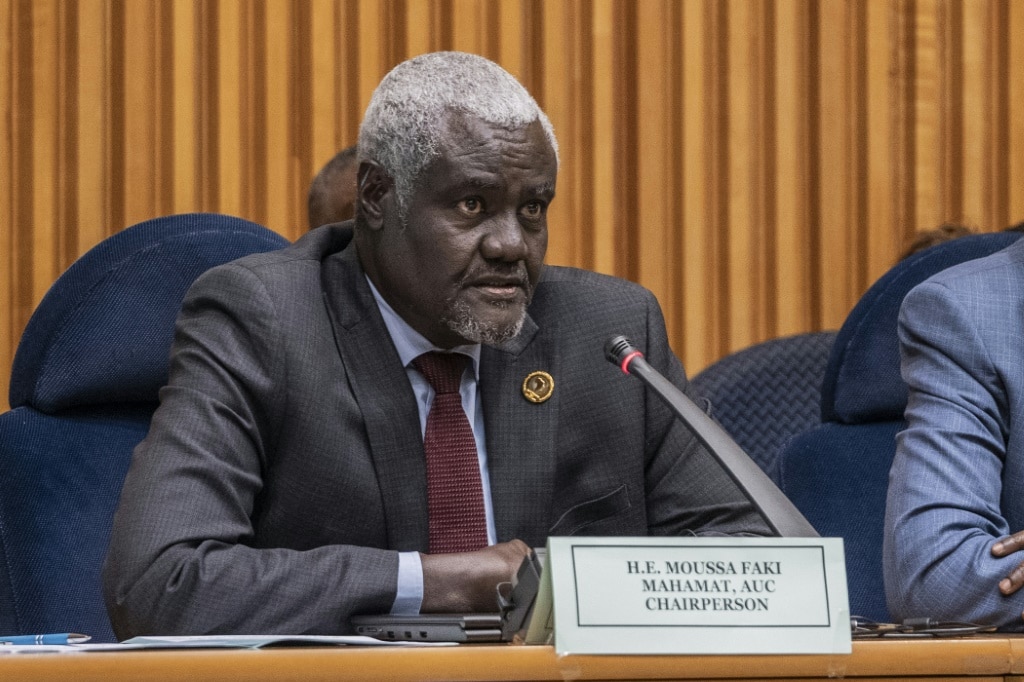North Korea says it tested new solid-fuel ICBM
North Korea says it tested new solid-fuel ICBM

North Korea said Friday it had successfully tested a solid-fuel intercontinental ballistic missile, hailing it as a key breakthrough for the country's nuclear counterattack capabilities.
South Korea's military had earlier said that a Thursday launch conducted by the North -- which briefly triggered a seek shelter order in parts of Japan -- was likely a new type of ballistic missile.
Photographs released by Pyongyang's state media Friday showed leader Kim Jong Un -- accompanied by his wife, sister and young daughter -- watching a missile blast off in a cloud of smoke and smiling in jubilation after the purportedly successful launch.
"A new-type ICBM, Hwasong-18, which will fulfill its mission of an important war deterrent as the future core pivotal means of the strategic force of the DPRK (North Korea), was test-fired," the official Korean Central News Agency said.
Testing the more technologically advanced solid-fuel missile was one of Kim's major goals in his military modernisation campaign, announced in his New Year report.
Such missiles are easier to store and transport, more stable and quicker to prepare for launch, and thus harder to detect and destroy pre-emptively.
"The aim of the test-fire was to confirm the performance of the high-thrust solid-fuel engines for multi-stage missiles (and) estimate the military feasibility of the new strategic weapon system," KCNA said.
Kim said the new weapon would "radically promote the effectiveness of its nuclear counterattack posture" and allow the North to "constantly strike extreme uneasiness and horror" into its enemies, KCNA added.
The images shared by state media and details provided by the South Korean military indicate the test was indeed the North's first successful launch of a solid-fuel missile, US-based analyst Ankit Panda told AFP.
"The missile's exhaust plume is consistent with a dirty, smoky solid propellant at work," he said.
"We also know from government authorities in South Korea that this missile flew high, and the North Koreans also appear to have released images showing that all stages successfully separated in the course of the missile's flight."
- Wish list -
All of Pyongyang's previously known intercontinental ballistic missiles have been liquid-fuelled, and the Friday test marks a long-desired breakthrough for the country's banned weapons programs.
It also fits the standard "pattern of provocation" by the North, which likes to first show off, then test new weapons, Go Myong-hyun, researcher at the Asan Institute for Policy Studies, told AFP.
At a military parade in Pyongyang in February, North Korea displayed a record number of nuclear and intercontinental ballistic missiles, including what analysts said was possibly a new solid-fuel ICBM.
"The reason North Korea is obsessed with solid-fuel missiles is because it will significantly reduce the preparation time before launch," Go said.
"This is important, as the longer it takes after bringing out the missile from a silo or a tunnel, the higher the possibility of destruction before launch."
The announcement comes a day before North Korea is set to mark one of its most important political anniversaries, the Day of the Sun on April 15.
The date commemorates founding leader Kim Il Sung's birthday and has typically been celebrated with significant weapons tests or military parades.
Relations between the two Koreas are at one of their lowest points in years, with Pyongyang declaring itself an "irreversible" nuclear power last year, effectively ending the possibility of denuclearisation talks.
Kim also ordered the military this year to intensify drills to prepare for a "real war".
Washington and Seoul have ramped up defence cooperation in response, staging joint military exercises with advanced stealth jets and high-profile US strategic assets.
North Korea views such exercises as rehearsals for invasion and described them on Tuesday as "frantic" drills "simulating an all-out war against" Pyongyang.
kjk/ceb/cwl



